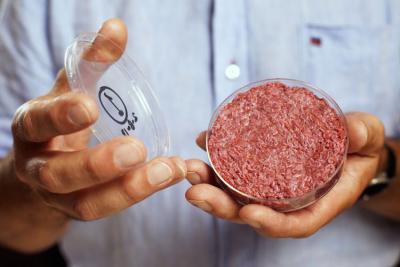

Michael Parkes, Staff Writer
Waking Times
We all know something is not quite right with our food system when organizations can sell burgers for under 2 bucks. Whether it is euros, dollars or pounds the idea that the cows grow to produce these beef burgers is reduced to a value only, means nutrition, sustainability and systemic wellness have all gone out the window.
Take a moment to watch this Vice feature on the beef industry, and you’ll get the message that the priority of this industry is to produce the cheapest cow patties as possible. Involved here are not just global corporations (even though they may be the driving forces), but also governments, food associations, and academic institutions, which work together to validate the force feeding of animals for human food.
Beef has been rolled out across the emerging world as foundational part of the diets of the everyday man, women and child. Now the research is pointing to the issues of how making beef available on such a scale is having not only on the environment, but also we humans who are meant to be nourished by its consumption. So the challenge now, if one chooses to enjoy a steak or homemade burger, is to identify where the beef has come from and what has the cow been fed?
This year a piece of research from the Food Chemistry journal has been published which investigated the feed for cows imported from China into the European Union. The research focused on feed supplements, such as genetic engineered (GE) bacteria, because the use of genetically modified organisms is not allowed in the EU. This includes GMO’s grown in crops, GE DNA, or ingredients used for feeding.
Specifically, the research tested B2 – Riboflavin supplement imported from China. What they discovered is incredibly frightening for the average meat-eater in Europe, because imbedded in the DNA of the B2 was not only GE bacteria but strands resistant to antibiotics.
‘Further testing showed it to contain genomic DNA conferring resistance to the antibiotic chloramphenicol. In addition, the strain contained DNA extrachromosomal plasmids with other antibiotic resistance genes. These conferred resistance to the antibiotics, ampicillin, kanamycin, bleomycin, tetracycline, and erythromycin.’ [Source]
The antibiotics listed here are all mainstream antibiotics used on humans and animals to treat harmful bacteria and disease. In most countries the resistance to these over-prescribed drugs is a huge problem because these known superbugs are adapting and learning how infect whole hospitals or water ways. But now these GE bacteria have found their way into the European food system, which would imply that it is already in other global food systems.
“The consequences of this pollution are potentially very serious,” Professor Gillings said. “Even very low antibiotic concentrations have significant biological and evolutionary effects. Australia has stringent regulations on the use of antibiotics in farm animals, but this cannot be said of elsewhere in the world and in the modern age of rapid transport, a superbug in the United States, China or India will inevitably make its way to Australian shores.” [Source]
This means GE bacteria are used to produce animal feed in China, then is exported to Europe to supplement cows being force fed, and then ground out into restaurants and supermarkets for our consumption. Not only is the meat our parents ate as children does not have the same nutrients now; we get a lot of extra modified and anti-biotic resistant molecules for free.
We all have the choice about what to eat and if you eat beef, take the time to consider where it is from and what it has been fed.
About the Author
Michael Parkes is a staff writer for Waking Times, the author of the blog, and the sustainable behaviors director for The Global Leadership Practice.
This article (What the Beef Industry Does to Bring You Cheap Burgers) was originally created and published by Waking Times and is printed here under a Creative Commons license with attribution to Michael Parkes and WakingTimes.com. It may be re-posted freely with proper attribution and author bio.
http://www.wakingtimes.com/2017/07/13/beef-industry-bring-cheap-burgers/

